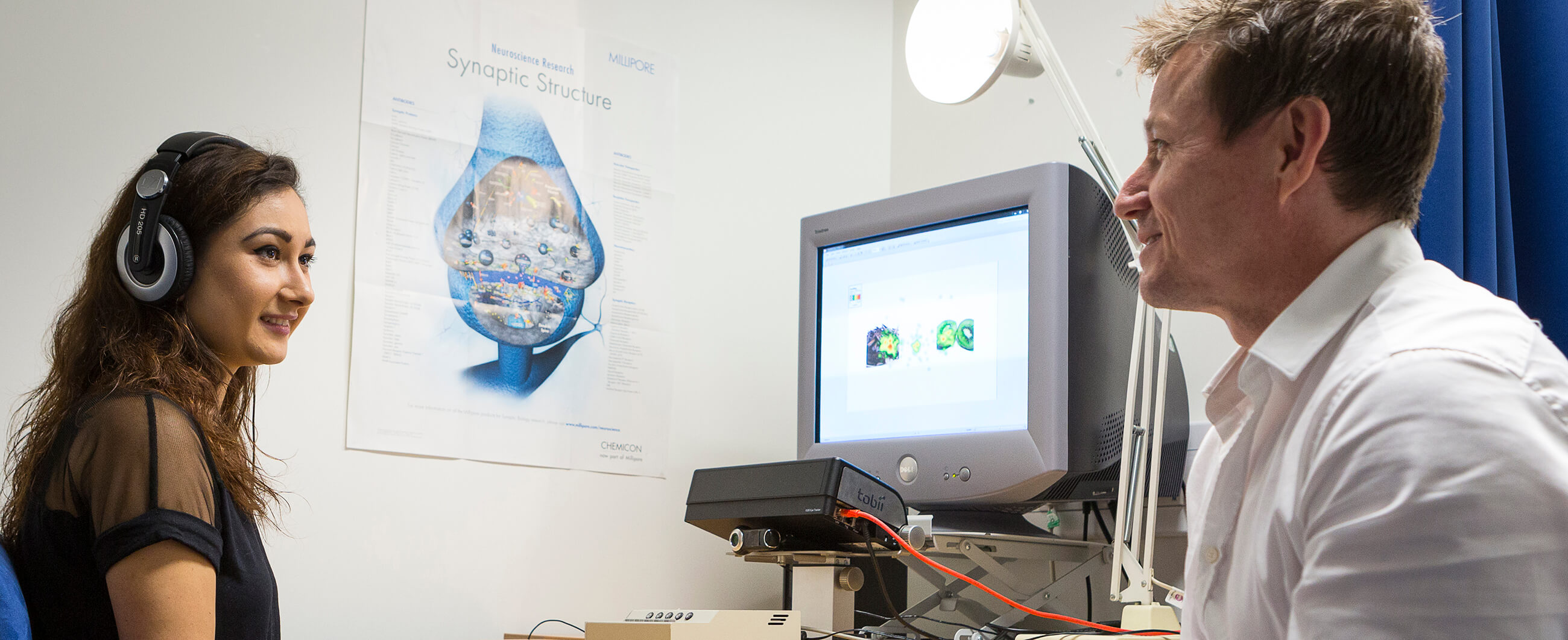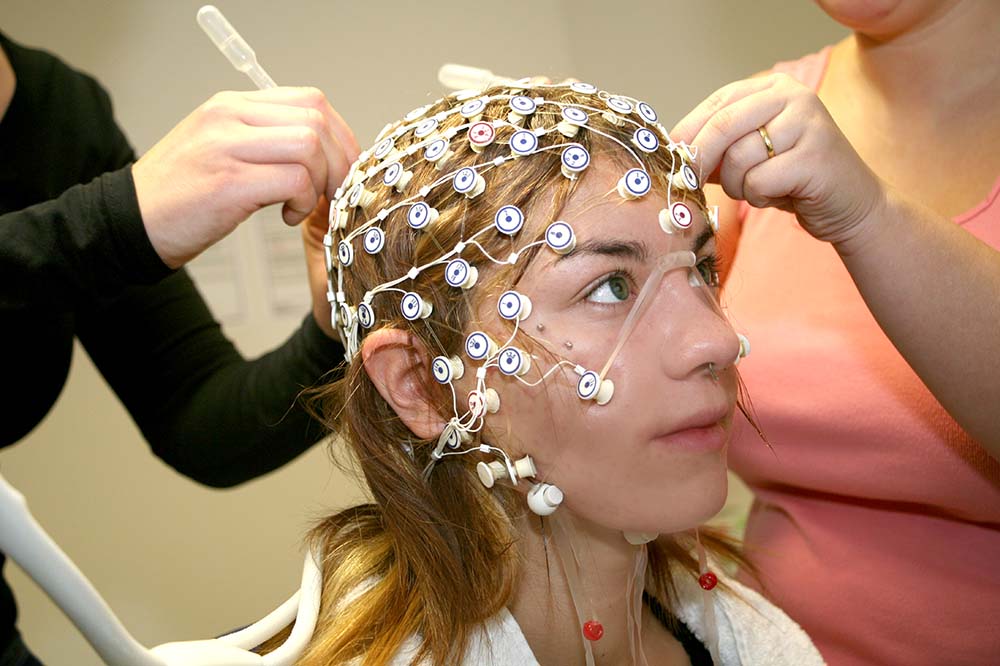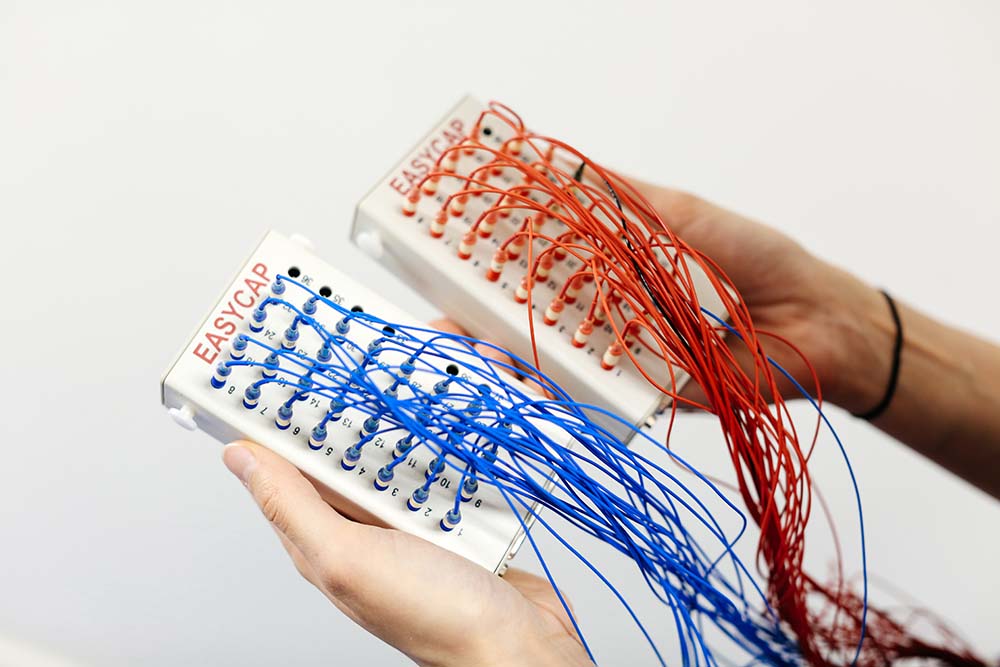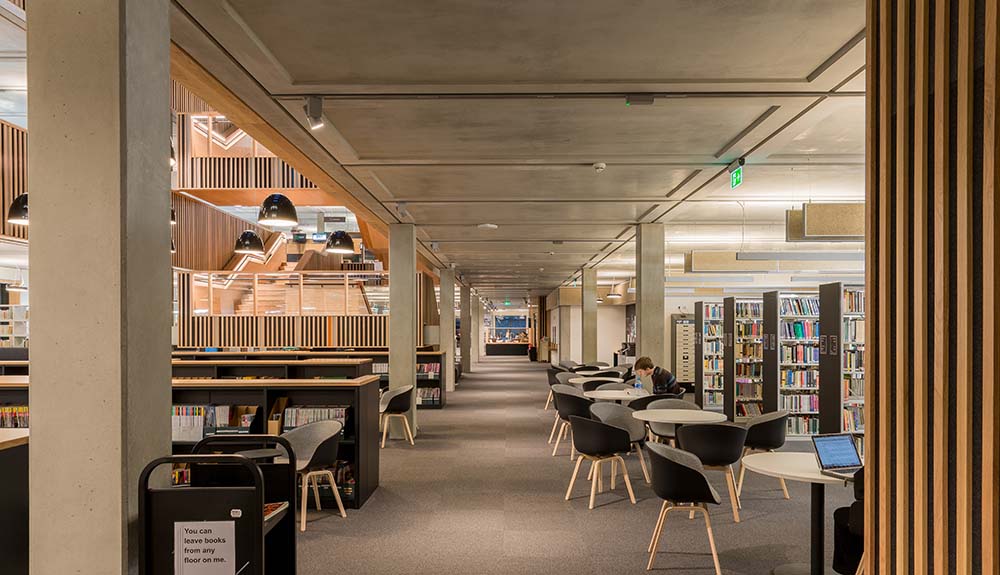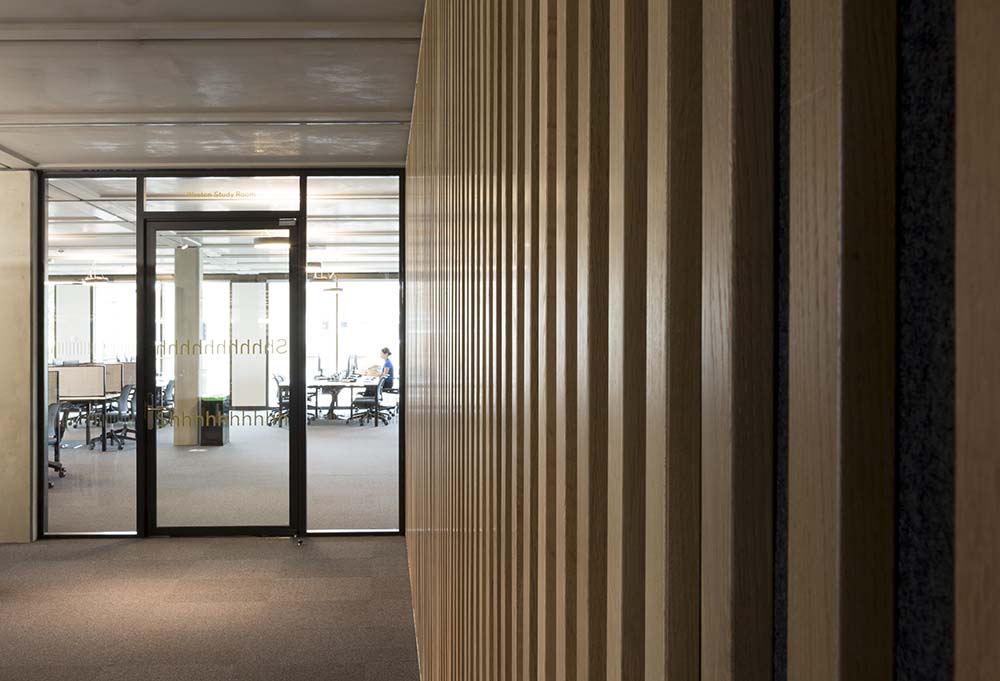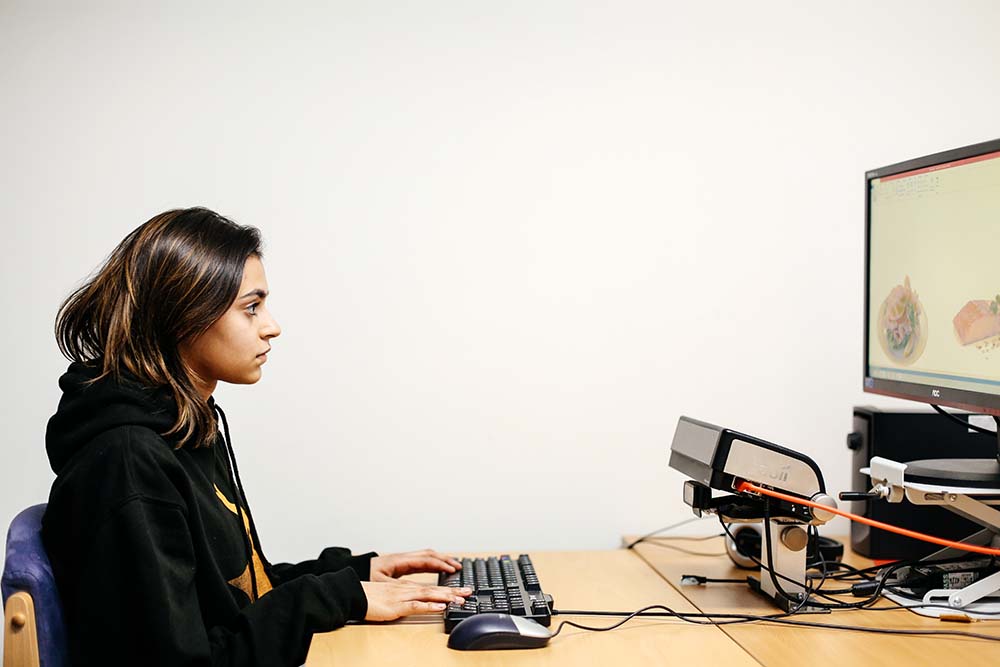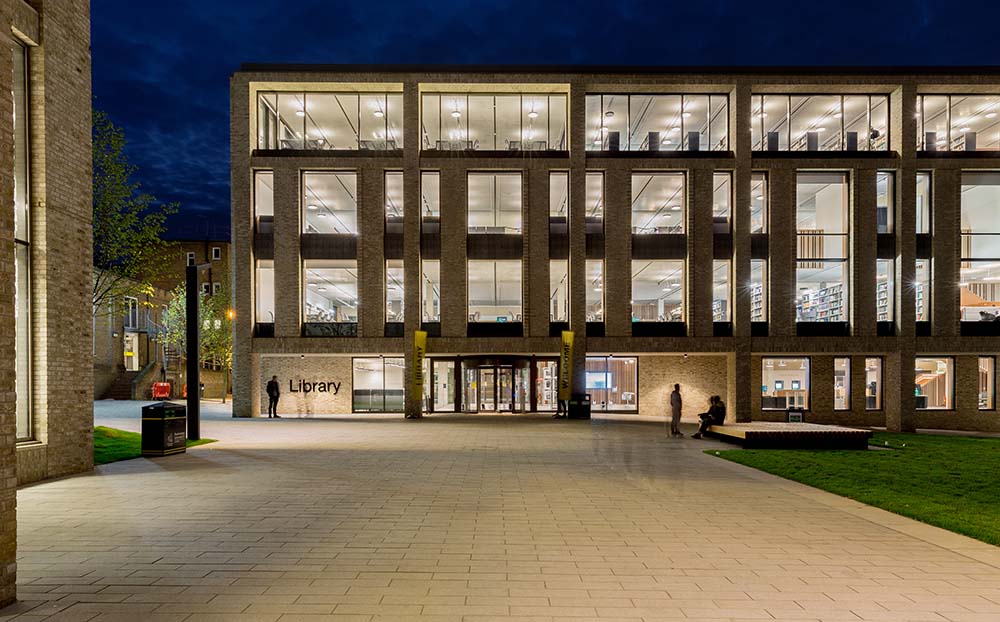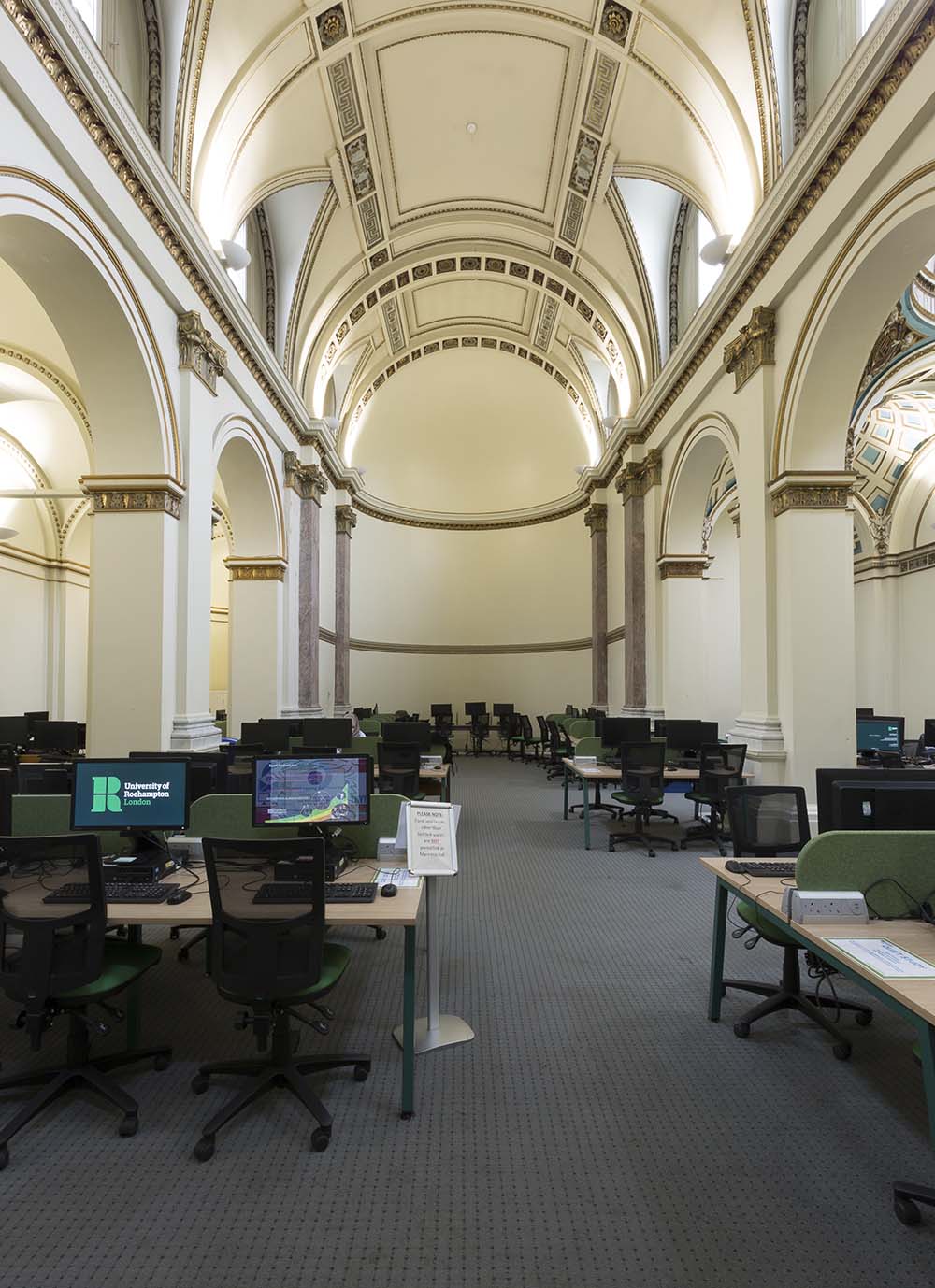Our School of Psychology has world-class facilities to help you learn and conduct research.
Our facilities are based at Whitelands College, a beautiful listed building with views over Richmond Park. As well as a wide range of specialist psychological research facilities, we have computer suites which you can use 24-hours a day, as well as dedicated computing stations for data processing and analysis for students and staff undertaking research.
Whatever course you join, you will also have access to our University Library, which was opened in 2017 and is one of the best in London.
More info on our specialist facilities below
Four dedicated Electroencephalogram (EEG) suites
An EEG records brain activity through small sensors that are attached to the scalp which pick up the electrical signals in the brain. EEGs are an important tool in psychological research, particularly cognitive neuroscience - the scientific study of how brain structure underlies cognitive functions. EEGs are used in a range of studies, including research into sleep disorders, attention, learning, memory and perception.
Magnetic resonance imaging (MRI)
The University of Roehampton is part of the Combined Universities Brain Imaging Centre (CUBIC). This allows access to a 3 Tesla Magnetic Resonance Imaging (MRI) scanners (Siemens TIM Trio). Currently, Roehampton researchers are working with range of MRI modalities, including functional and volumetric MRI, Magnet Resonance Spectroscopy (MRS), and real-time fMRI.
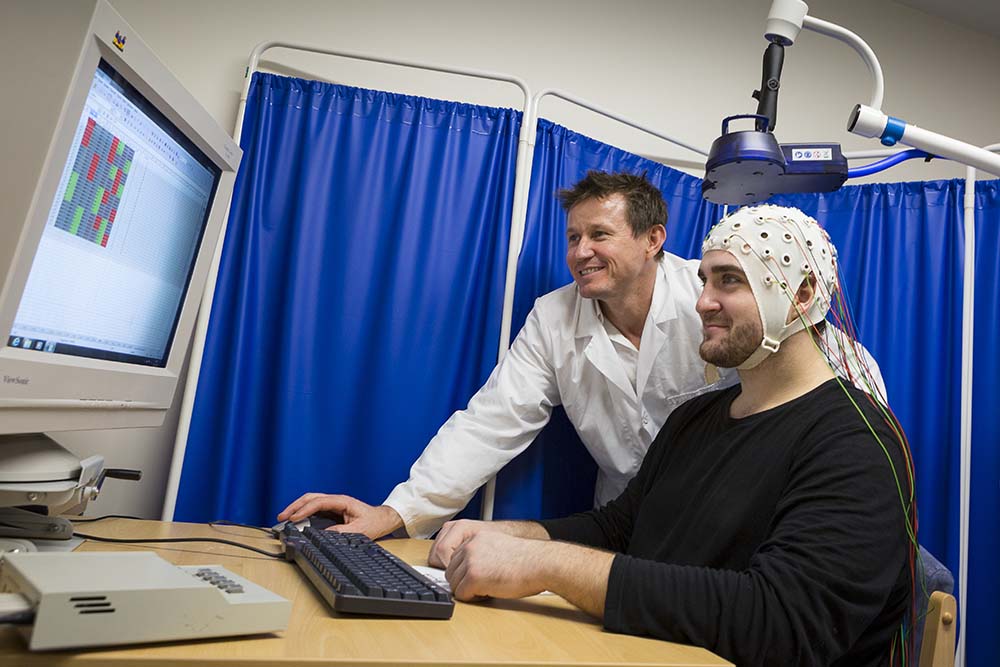
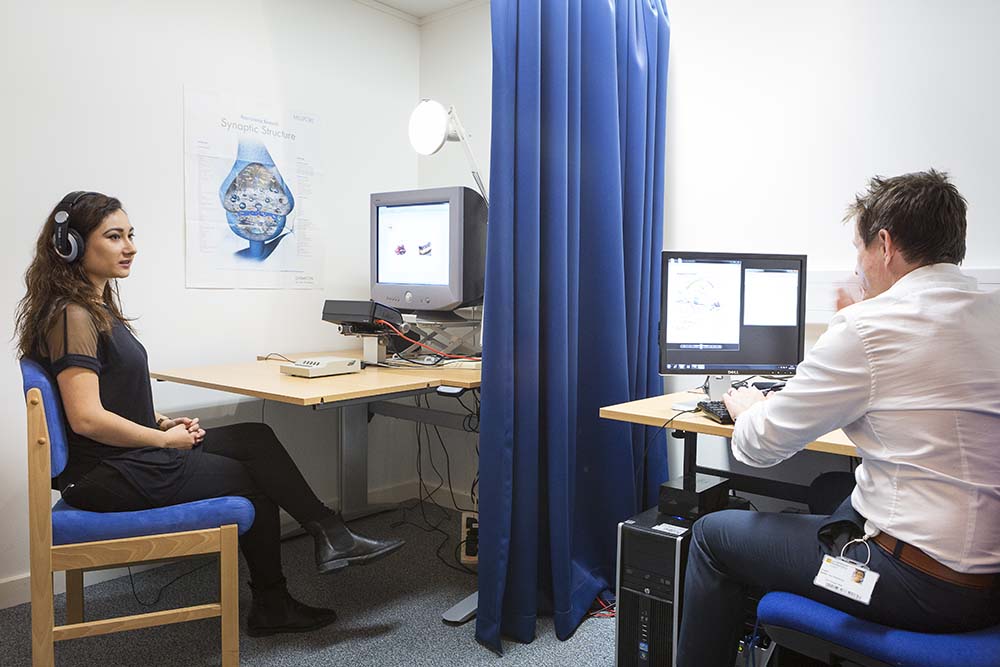
Repetitive Trans Cranial Magnetic Stimulator (rTMS)
Transcranial magnetic stimulation involves using magnetic pulses to target specific areas of the brain. An electromagnetic coil is placed near your head. This coil generated magnetic pulses which produce electrical currents in your nerve cells. The process isn’t painful, but participants can feel a knocking, tapping or tingling feeling on their head. rTMS is sometimes used as a treatment of depression, and there is ongoing active research in its use with other neuropsychiatric conditions.
Eye tracking equipment
Our department has static and head-mounted gaze-tracking equipment, which measure where a participant is looking on, for example, a computer screen. By examining what visual information is selected in psychological experiments, researchers can gain a deeper understanding of cognitive processes during tasks.
Advanced computer software
Our computer facilities include software systems such as CANTAB eclipse (Cambridge Cognition Ltd) and CANTAB Connect for cognitive function tests, Qualtrics for online surveys, Teleform (HP) for auto data entry of scannable questionnaires, Observer XT (Noldus) for video analysis of behaviour, FaceReader (Noldus) for automated assessment of emotions in facial expressions, ePrime for experimental studies and Inquisit which provides remote online testing and data collection capabilities, allowing access to large sample sizes.
Psychophysiological suites
We have two psychophysiological suites that are equipped for collecting either blood or saliva for research projects.
